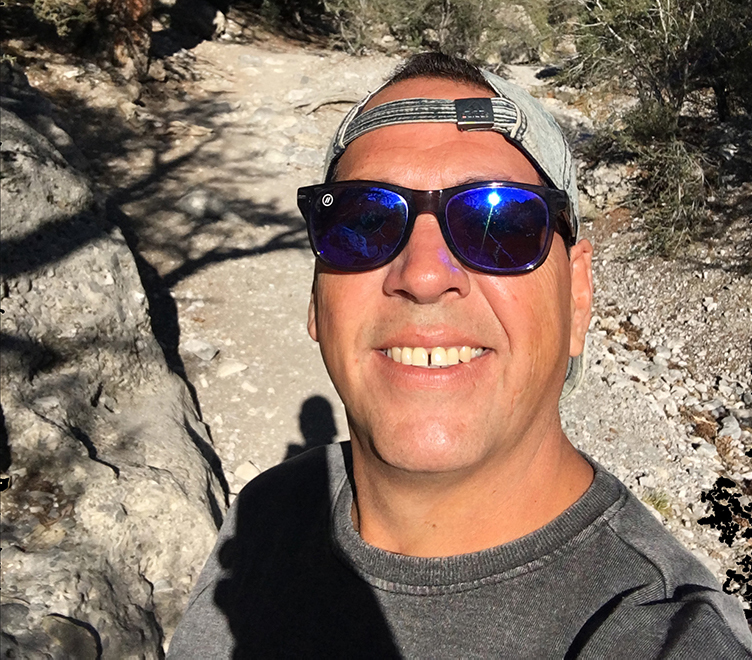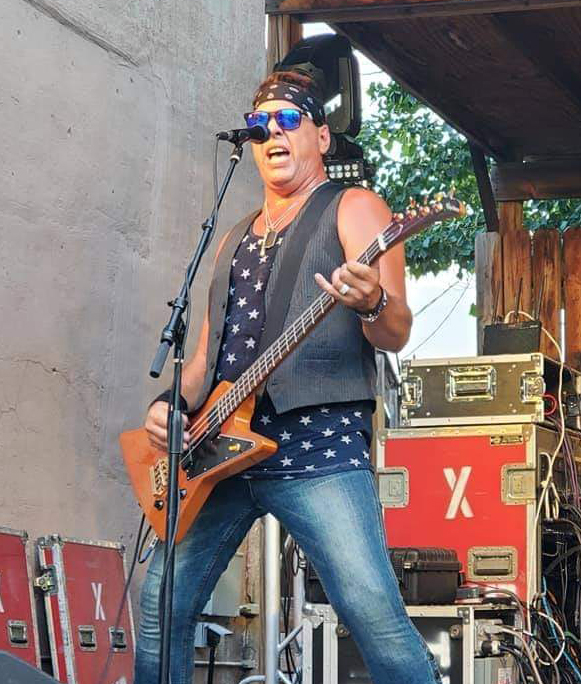How Steve fueled addiction, and found recovery, through music

Published April 12, 2022
Music has always been part of Steve Handel’s life. His mother was a talented piano player who influenced him to start playing acoustic guitar at the age of 11. He remembers seeing bands like Kiss on TV and thinking, “That’s exactly what I want to do.”
It didn’t take him long to start. At 13, he started performing with a band in school. And in 2006, he started his heavy metal band “Seventh Calling.” Over the next 12 years, they released four albums and toured throughout the U.S. and Europe. The band was renowned for dramatic stage shows and its original, thrash metal-influenced music.
“It was a lot of fun – sometimes too much fun,” Handel said. “Really, I was fueling my addiction by playing music.”
Throughout his time with “Seventh Calling,” and even before, Handel relied on alcohol.
“There were things I wasn’t able to deal with and wouldn’t talk to anyone about,” he said. “I’m suppressing all this stuff, this anger and grief, and I just put myself into my music and my drinking.”

Eventually, the daily partying and alcohol use took its toll. Handel remembered playing in Sturgis in 2018 – a whole week when he couldn’t be drinking – and having severe shakes.
“As soon as we were done, I went straight back to alcohol,” he said. “A couple weeks later I finally had enough. I was losing friends, I was on my third divorce and I was putting my body through hell with how much I drank each day.”
Handel had already been through treatment years before for meth use. He decided to try getting sober on his own.
“It wasn’t as hard to quit drinking as I expected. The hardest parts were the things that I’d remember and have to deal with,” Handel said. “It was my mental side – family deaths, relationships, all these things I hadn’t dealt with while I was drinking.”
That’s what brought Handel to Face It TOGETHER. He remembers being surprised by the warm welcome he received during his first visit.
“Some atmospheres are so sterile and judgmental,” he said. “Here, I enjoyed coming through the door. I was treated equal, the same, human.”
Despite feeling comfortable in the office, it took a while for Handel to open up to his coach, Joe. As the relationship grew, he grew more confident and came to value Joe’s opinion.
“I was a mess when I walked through that door,” he said. “Ultimately, just having that ability to talk with someone to throw ideas out and being supported really helped. This past year things have really changed for me a lot, mentally and personally in my life.”
Handel’s relationships with his family members have improved greatly since his sobriety. One he’s particularly grateful for was the time he got with his father before he passed away from cancer.
“My parents were hiding how bad his cancer was. When I came back to Sioux Falls, I saw how frail he had gotten. I’m glad I was able to fully come back for him. That was probably the most happy I’d seen my dad – he couldn’t believed how much I’d changed in six months,” he said. “Without sobriety, I wouldn’t have been able to do that.”
Though he no longer tours, music still plays a large role in Handel’s life. He plays in a cover band in Sioux Falls and listens to music most of the time day-to-day.
“I love that there’s a song out there for every mood. It can energize me, make me happy or sad – you name it,” he said.
Handel owns an Airbnb property in Sioux Falls and is doing his best to stay in the moment. He’s still working through the grief and other emotions that were so difficult in early recovery, but he said it’s getting better every day.
“It’s a continuous process of checks and balances, so to speak, and having Joe to coach me along has helped tremendously,” he said. “If you give it time and you’re willing to find a goal to fight for, there’s nothing worth trying."
Handel was recently interviewed about his experiences at Face It TOGETHER on KELOLAND Living. You can watch the segment here.
